-
 Bitcoin
Bitcoin $85,034.7515
0.87% -
 Ethereum
Ethereum $1,878.5720
-0.11% -
 Tether USDt
Tether USDt $0.9997
-0.02% -
 XRP
XRP $2.1173
-2.71% -
 BNB
BNB $603.7936
-2.09% -
 Solana
Solana $125.8960
-2.16% -
 USDC
USDC $1.0000
0.00% -
 Dogecoin
Dogecoin $0.1717
-1.15% -
 Cardano
Cardano $0.6803
-0.05% -
 TRON
TRON $0.2371
1.16% -
 Toncoin
Toncoin $4.0680
-1.64% -
 Chainlink
Chainlink $13.6041
-2.67% -
 UNUS SED LEO
UNUS SED LEO $9.3977
2.15% -
 Stellar
Stellar $0.2673
-2.41% -
 Avalanche
Avalanche $19.4065
-1.12% -
 Sui
Sui $2.4228
0.28% -
 Shiba Inu
Shiba Inu $0.0...01239
-4.17% -
 Hedera
Hedera $0.1682
-1.91% -
 Polkadot
Polkadot $4.1064
-3.13% -
 Litecoin
Litecoin $82.6894
-3.10% -
 MANTRA
MANTRA $6.1952
-1.48% -
 Bitcoin Cash
Bitcoin Cash $306.4058
-2.56% -
 Bitget Token
Bitget Token $4.6047
-1.08% -
 Dai
Dai $1.0000
-0.01% -
 Ethena USDe
Ethena USDe $0.9999
0.02% -
 Pi
Pi $0.6782
-5.17% -
 Hyperliquid
Hyperliquid $13.4844
-1.67% -
 Monero
Monero $215.4922
-1.00% -
 Uniswap
Uniswap $6.1086
-1.70% -
 Aptos
Aptos $5.2965
-1.83%
How to mine in Huobi Mining Pool
Huobi Mining Pool, a leading mining platform from the Huobi Group, offers a user-friendly and profitable environment for miners to contribute their computational power and earn rewards for mining various cryptocurrencies.
Jan 09, 2025 at 07:30 pm
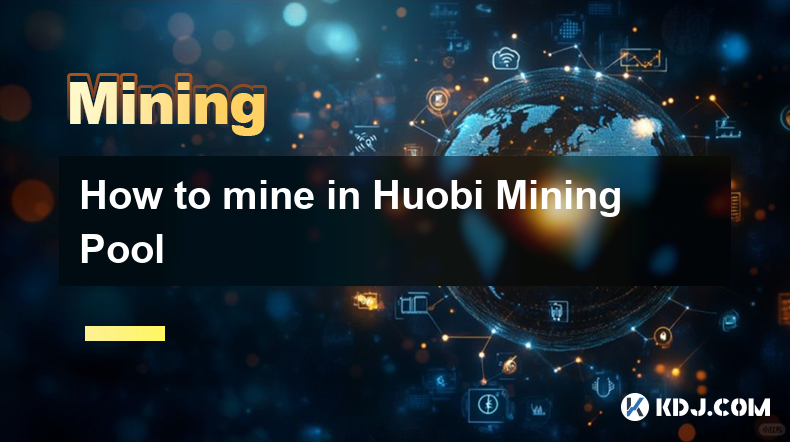
Key Points:
- Understanding Huobi Mining Pool
- Steps to Register and Mine in Huobi Mining Pool
- Hardware Requirements and Miner Selection
- Stratum Connection and Configuration
- Pool Hashrate and Earnings Calculation
How to Mine in Huobi Mining Pool
Step 1: Understand Huobi Mining Pool
Huobi Mining Pool is a leading cryptocurrency mining pool operated by the Huobi Group. It offers a secure and efficient platform for users to contribute their computational power to mine various cryptocurrencies, including Bitcoin (BTC), Litecoin (LTC), and Ethereum (ETH). As a multi-currency mining pool, Huobi Mining Pool allows miners to switch between supported cryptocurrencies based on market conditions and profitability.
Step 2: Register and Mine in Huobi Mining Pool
To start mining in Huobi Mining Pool, users need to register an account. The registration process is straightforward and involves providing basic information such as email address and password. After registration, users can access the pool's dashboard and connect their mining hardware. Huobi Mining Pool supports a wide range of hardware, including ASIC miners and GPUs, providing flexibility for miners.
Step 3: Hardware Requirements and Miner Selection
The choice of mining hardware depends on factors such as the cryptocurrency being mined, power consumption, and profitability. ASIC miners are specialized hardware designed specifically for cryptocurrency mining and offer higher hashrates and efficiency compared to GPUs. GPUs, on the other hand, are more versatile but have lower hashrates. Miners should тщательно рассмотреть the specifications and costs of different hardware options to make an informed choice.
Step 4: Stratum Connection and Configuration
To connect the mining hardware to Huobi Mining Pool, miners need to use a Stratum mining protocol. Stratum is a standardized communication protocol designed for cryptocurrency mining that allows miners to send work requests and submit shares to the pool. Miners need to configure their mining software with the pool's Stratum server address, port, and worker name.
Step 5: Pool Hashrate and Earnings Calculation
After connecting to the pool, miners contribute their hashrate to the overall pool hashrate. The pool hashrate is a measurement of the collective computational power of all miners in the pool. A higher pool hashrate typically results in increased block rewards. Miners' earnings are proportional to their contributed hashrate. The pool calculates earnings based on the miner's share of valid shares submitted to the pool.
FAQs
Q: What are the fees associated with mining in Huobi Mining Pool?
A: Huobi Mining Pool charges a 1.6% pool fee on all mining rewards.
Q: What cryptocurrencies can be mined in Huobi Mining Pool?
A: Huobi Mining Pool supports multiple cryptocurrencies, including Bitcoin (BTC), Litecoin (LTC), Ethereum (ETH), Ethereum Classic (ETC), Zcash (ZEC), and Dash (DASH).
Q: How often are block rewards distributed?
A: Block rewards are distributed to miners on a regular basis, typically within 24 hours of the block being found.
Q: What are the minimum hardware requirements for mining in Huobi Mining Pool?
A: The hardware requirements vary depending on the cryptocurrency being mined. However, most cryptocurrencies require specialized ASIC miners or high-powered GPUs.
Q: How can I monitor my mining progress?
A: Miners can monitor their mining progress through the Huobi Mining Pool dashboard. The dashboard provides real-time information about hashrate, earnings, and block shares.
Disclaimer:info@kdj.com
The information provided is not trading advice. kdj.com does not assume any responsibility for any investments made based on the information provided in this article. Cryptocurrencies are highly volatile and it is highly recommended that you invest with caution after thorough research!
If you believe that the content used on this website infringes your copyright, please contact us immediately (info@kdj.com) and we will delete it promptly.
- Sony Electronics Singapore Announces Support for USD Coin (USDC) Payments
- 2025-04-02 17:35:12
- Dogecoin (DOGE) Poised for 270% Rally as Key Pattern Emerges
- 2025-04-02 17:35:12
- Bitcoin (BTC) Price Today Rises Above $84k!
- 2025-04-02 17:30:12
- Institutional Adoption Is Shaping Bitcoin's Market Value
- 2025-04-02 17:30:12
- 2025 List Identifies 3008 Billionaires, Including 16 Crypto Moguls
- 2025-04-02 17:25:12
- XRP Price Prediction: Will the SEC's Closed Meeting on April 3 Determine the Remittance Token's Near-Term Trajectory?
- 2025-04-02 17:25:12
Related knowledge
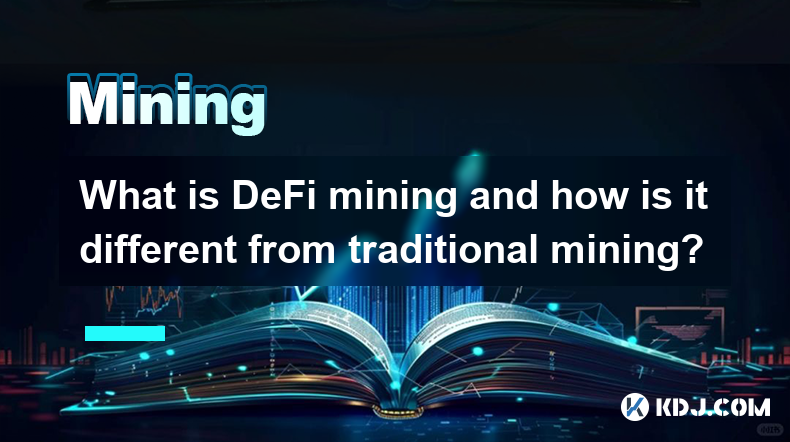
What is DeFi mining and how is it different from traditional mining?
Apr 02,2025 at 09:50am
DeFi mining, also known as yield farming or liquidity mining, is a process within the decentralized finance (DeFi) ecosystem where users provide liquidity to decentralized platforms in exchange for rewards. Unlike traditional mining, which involves solving complex mathematical problems to validate transactions and add them to a blockchain, DeFi mining f...
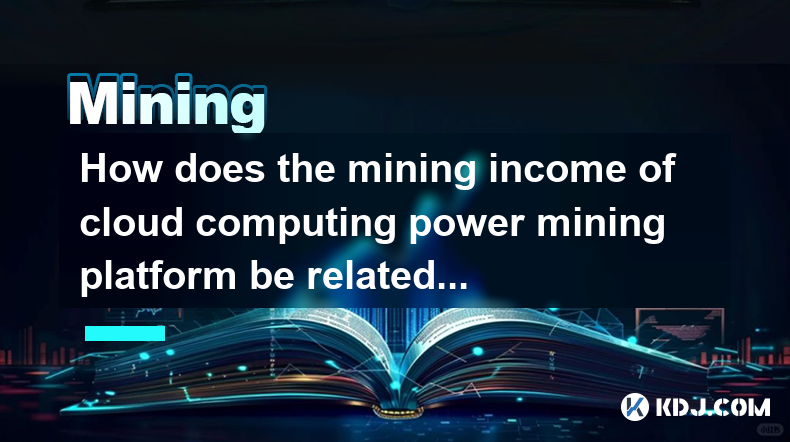
How does the mining income of cloud computing power mining platform be related to mining pool allocation?
Apr 02,2025 at 01:56am
The relationship between the mining income of a cloud computing power mining platform and the allocation of mining pools is a crucial aspect of cryptocurrency mining. Mining income is influenced by various factors such as the efficiency of the mining hardware, electricity costs, and the specific cryptocurrency being mined. However, the allocation of min...
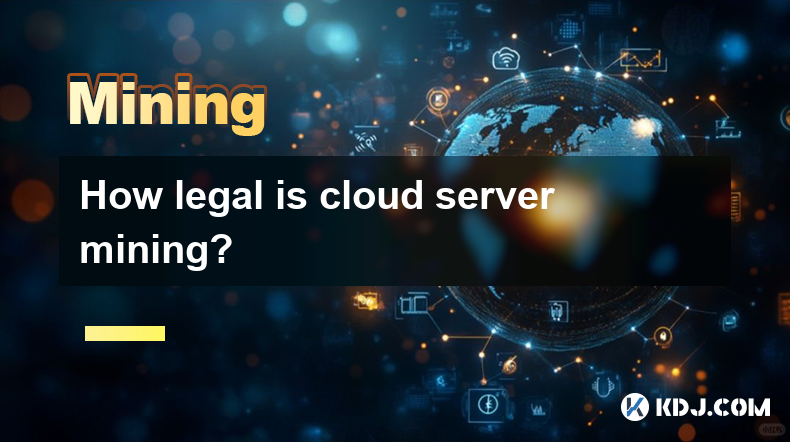
How legal is cloud server mining?
Apr 01,2025 at 08:08am
Cloud server mining has become an increasingly popular method for individuals and companies to participate in cryptocurrency mining without the need for expensive hardware and high electricity costs. However, the legality of cloud server mining can be a complex issue, as it varies by jurisdiction and depends on several factors. This article will explore...
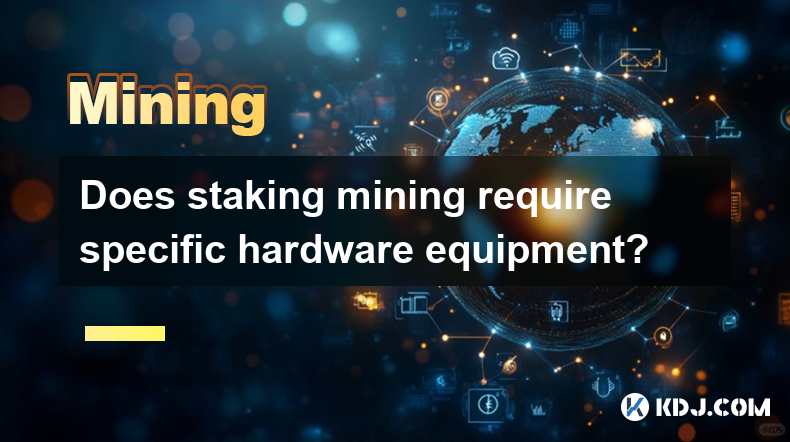
Does staking mining require specific hardware equipment?
Apr 02,2025 at 08:21am
Staking mining, often referred to simply as staking, is a process used by various cryptocurrencies to secure their networks and validate transactions. Unlike traditional mining, which often requires specialized hardware like ASICs (Application-Specific Integrated Circuits) or high-performance GPUs (Graphics Processing Units), staking typically does not ...
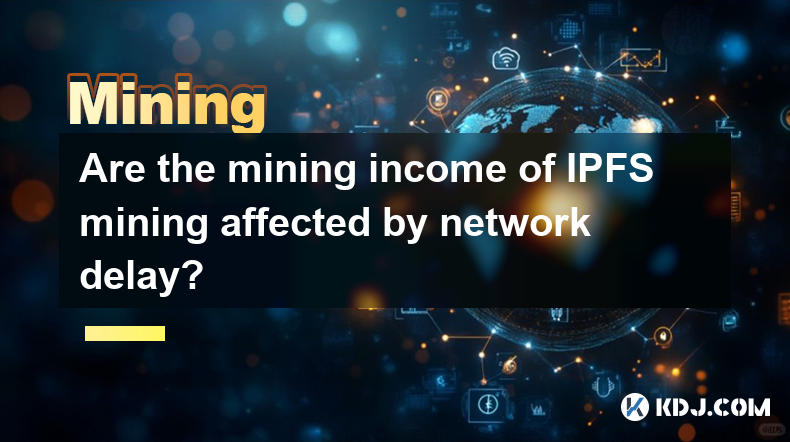
Are the mining income of IPFS mining affected by network delay?
Apr 01,2025 at 09:36pm
Are the Mining Incomes of IPFS Mining Affected by Network Delay? Understanding IPFS Mining and Network Delay's ImpactIPFS (InterPlanetary File System) mining, unlike Bitcoin mining, doesn't involve solving complex cryptographic puzzles. Instead, it focuses on providing storage and bandwidth to the network. Miners earn rewards for storing and sharing dat...
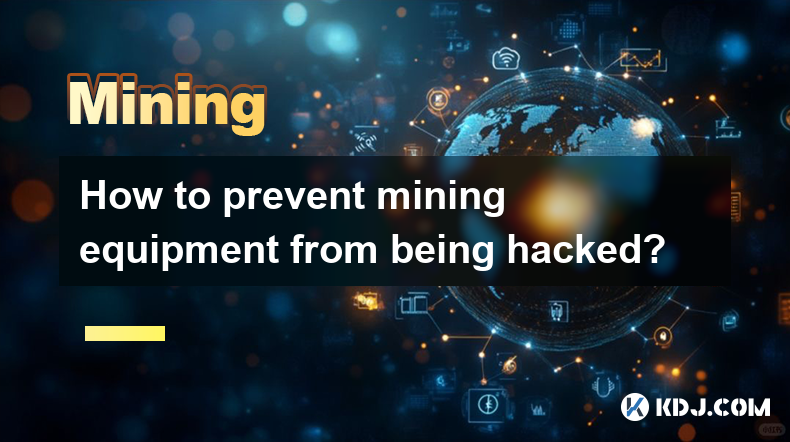
How to prevent mining equipment from being hacked?
Apr 01,2025 at 06:22am
Understanding the ThreatsCryptocurrency mining, while potentially lucrative, exposes your equipment to various cyber threats. These threats range from simple malware infections that steal your mining profits to sophisticated attacks that hijack your entire operation. Understanding these threats is the first step in effective protection. This includes r...

What is DeFi mining and how is it different from traditional mining?
Apr 02,2025 at 09:50am
DeFi mining, also known as yield farming or liquidity mining, is a process within the decentralized finance (DeFi) ecosystem where users provide liquidity to decentralized platforms in exchange for rewards. Unlike traditional mining, which involves solving complex mathematical problems to validate transactions and add them to a blockchain, DeFi mining f...

How does the mining income of cloud computing power mining platform be related to mining pool allocation?
Apr 02,2025 at 01:56am
The relationship between the mining income of a cloud computing power mining platform and the allocation of mining pools is a crucial aspect of cryptocurrency mining. Mining income is influenced by various factors such as the efficiency of the mining hardware, electricity costs, and the specific cryptocurrency being mined. However, the allocation of min...

How legal is cloud server mining?
Apr 01,2025 at 08:08am
Cloud server mining has become an increasingly popular method for individuals and companies to participate in cryptocurrency mining without the need for expensive hardware and high electricity costs. However, the legality of cloud server mining can be a complex issue, as it varies by jurisdiction and depends on several factors. This article will explore...

Does staking mining require specific hardware equipment?
Apr 02,2025 at 08:21am
Staking mining, often referred to simply as staking, is a process used by various cryptocurrencies to secure their networks and validate transactions. Unlike traditional mining, which often requires specialized hardware like ASICs (Application-Specific Integrated Circuits) or high-performance GPUs (Graphics Processing Units), staking typically does not ...

Are the mining income of IPFS mining affected by network delay?
Apr 01,2025 at 09:36pm
Are the Mining Incomes of IPFS Mining Affected by Network Delay? Understanding IPFS Mining and Network Delay's ImpactIPFS (InterPlanetary File System) mining, unlike Bitcoin mining, doesn't involve solving complex cryptographic puzzles. Instead, it focuses on providing storage and bandwidth to the network. Miners earn rewards for storing and sharing dat...

How to prevent mining equipment from being hacked?
Apr 01,2025 at 06:22am
Understanding the ThreatsCryptocurrency mining, while potentially lucrative, exposes your equipment to various cyber threats. These threats range from simple malware infections that steal your mining profits to sophisticated attacks that hijack your entire operation. Understanding these threats is the first step in effective protection. This includes r...
See all articles

























































































